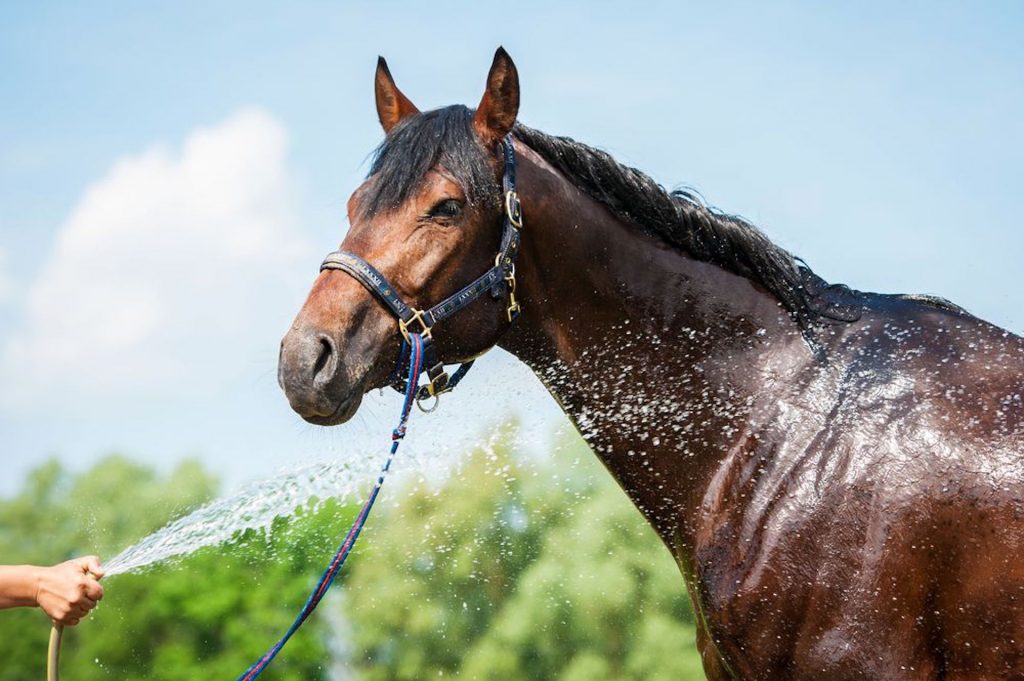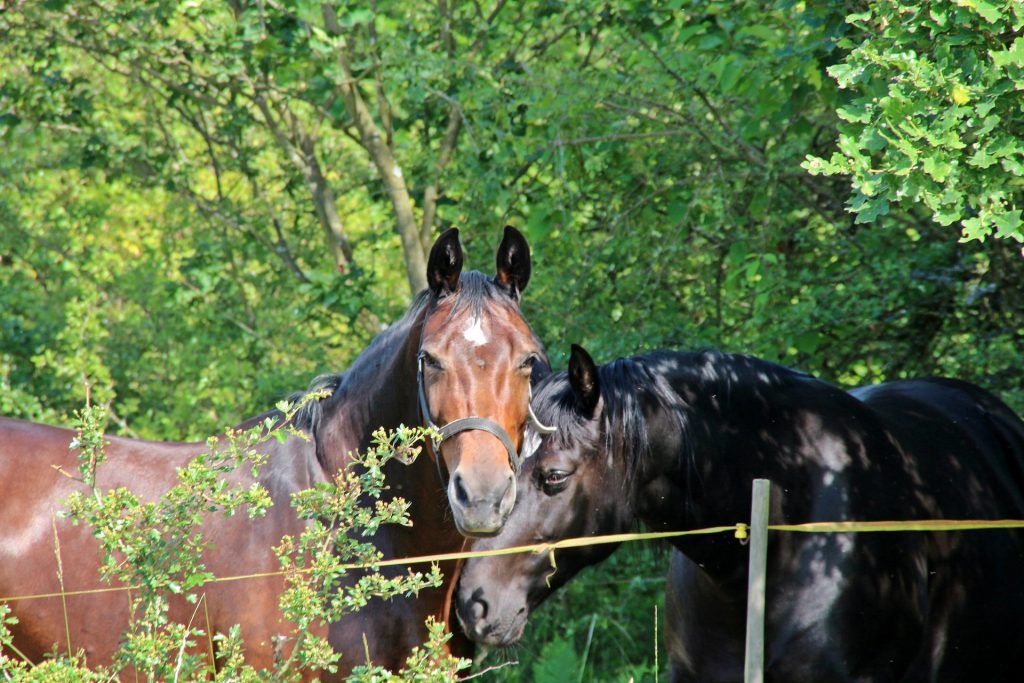Tuesday, June 20, 2017
Over the past few days, we have been hit by an intense and long-lasting heat wave. Seaver gives you 7 tips to help your horse cope with the heatwave. Several regions have been placed under orange alert, with temperatures well above normal. Just like us, horses suffer from the heat.

Whether in the stall or in the meadow, it's important to use common sense. Here are a few tips to help protect your pet in very hot weather.
For horses, as for humans, hydration is essential. On average, your horse drinks between 20 and 40 liters of water a day. In hot weather, they can double their intake to up to 100 liters. So be sure to provide plenty of clean water. If your horse is in a stall, remember to check the condition of its drinking trough. It should always be full and clean, as water quickly stagnates in the heat. Beware, however, of very cool water, which can cause colic.
Despite hot weather and heavy sweating, some horses don't hydrate enough. Put a salt stone at your horse's disposal. Licking the salt will encourage your horse to drink more and prevent the risk of dehydration. You can also give him water with a little salt added, or electrolytes available from your vet or tack shop.
Water is one of the best ways to cool your horse's body. To soothe him and lower his body temperature, shower him several times a day if necessary.
If your horse lives in a meadow, make sure it can shelter from the sun under trees or a shelter. For horses living indoors, keep stable doors or stall shutters slightly ajar to keep the heat out while allowing air to circulate. Fans are an excellent way of keeping the air moving in the stables, but use them judiciously. If you can, take your horse outside at night. That way, he'll benefit from the cool night air, and be less disturbed by insects.

Some equines are more sensitive to the sun than others, especially those with skin depigmentation known as ladre. These horses are at greater risk of sunburn and need to be protected from UV rays. Protect them with SPF 50 sunscreen on the affected areas (tip of nose, barnacles).
In high temperatures, horses self-regulate their body heat by sweating. This sweat is particularly appreciated by insects such as flies, mosquitoes and horseflies, as it is very salty. To help protect your horse, consider insect repellents, masks or anti-insect shirts.

It's best to work at a slower pace with your horse. High temperatures combined with exertion could endanger your horse's health. Ideally, you should keep your sessions shorter, at the least hot hours, and monitor your horse's heart rate closely (it should be around 120 bpm). We advise you to use the riding arena rather than the arena. It's also a good time to go for a walk to cool off in the undergrowth.
See you soon for another article,
The Seaver team